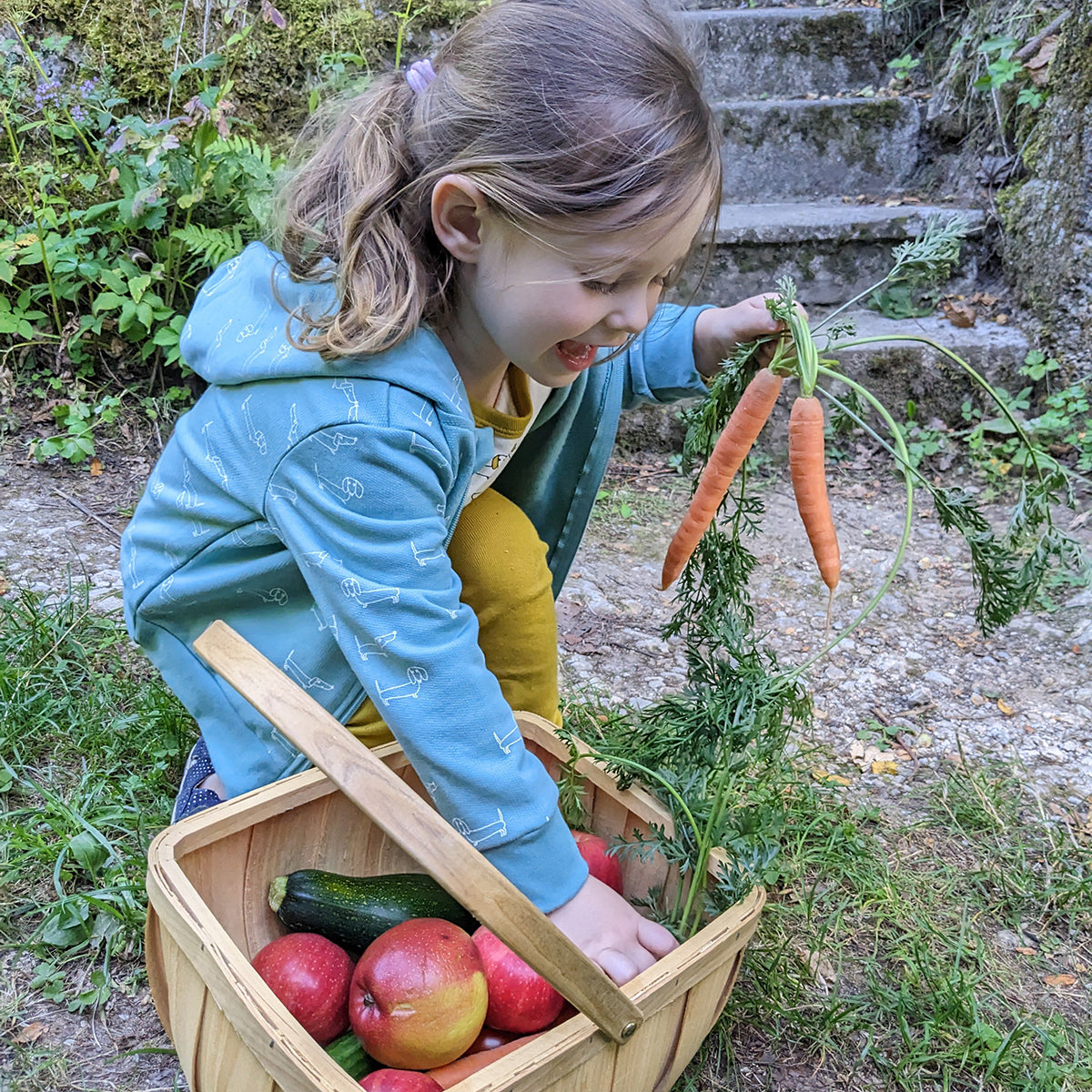organic cotton
Cotton is the most widely cultivated natural fiber in the world. At greenjama, we use only certified organic cotton, as conventionally grown cotton poses a significant burden to people and the environment:
- The seeds are often genetically modified or chemically treated.
- Irrigation is artificial, and the water is extracted from the local ecosystem.
- Cultivation is carried out in monocultures, which depletes the soil and makes plants vulnerable to pests and diseases. This necessitates the use of high levels of pesticides and artificial fertilizers.
- Defoliants are used for mechanical harvesting, which poses the risk of toxic residues on the fibers and the finished textile.
In contrast, organic cotton is grown in crop rotation and naturally fertilized. Irrigation is natural, using rainwater. Pesticides and defoliants are not permitted. Organic cotton uses 91% less water than conventional cotton. Only 1% of global cotton production takes place under controlled organic conditions.
organic wool
Our GOTS-certified wool comes from controlled organic livestock farming, where animal welfare and environmental protection are paramount. The sheep are raised in a species-appropriate manner, free from painful practices such as mulesing, and their pastures are managed without harmful chemicals. From shearing to gentle processing and dyeing, strict ecological and social criteria are adhered to. This creates a high-quality, sustainable natural material with a transparent supply chain.
The extra-fine Merino fiber is soft, lightweight, and durable. It regulates body temperature and absorbs moisture without feeling clammy. This ensures a comfortable feel—perfect for children who are always on the move.
Our wool is processed in the Swabian Alb, a region with centuries of textile tradition. High-quality fabrics are produced there under fair and environmentally friendly conditions, ensuring short routes and transparency throughout the entire supply chain.
This creates a natural material that meets the highest standards of quality, sustainability and responsibility.
Linen
Linen is one of the oldest cultivated plants in the world and is obtained from the fibers of the flax plant. Flax cultivation is particularly environmentally friendly because it requires little water and usually grows without pesticides. This makes linen one of the most sustainable natural fibers of all.
After harvesting, the fiber is carefully processed, spun, and crafted into robust yet delicate fabrics. In the greenjama collection, we combine linen with organic cotton to combine the best properties of both materials.
Linen is known for its excellent breathability and its ability to quickly absorb and release moisture. This makes the fabric pleasantly cool in summer while providing a naturally dry feeling on the skin. Furthermore, linen is durable, long-lasting, and gets softer with each wash without losing its quality.
By choosing linen, you are choosing a natural, sustainable material that perfectly combines comfort, functionality, and ecological responsibility—ideal for high-quality nightwear.





